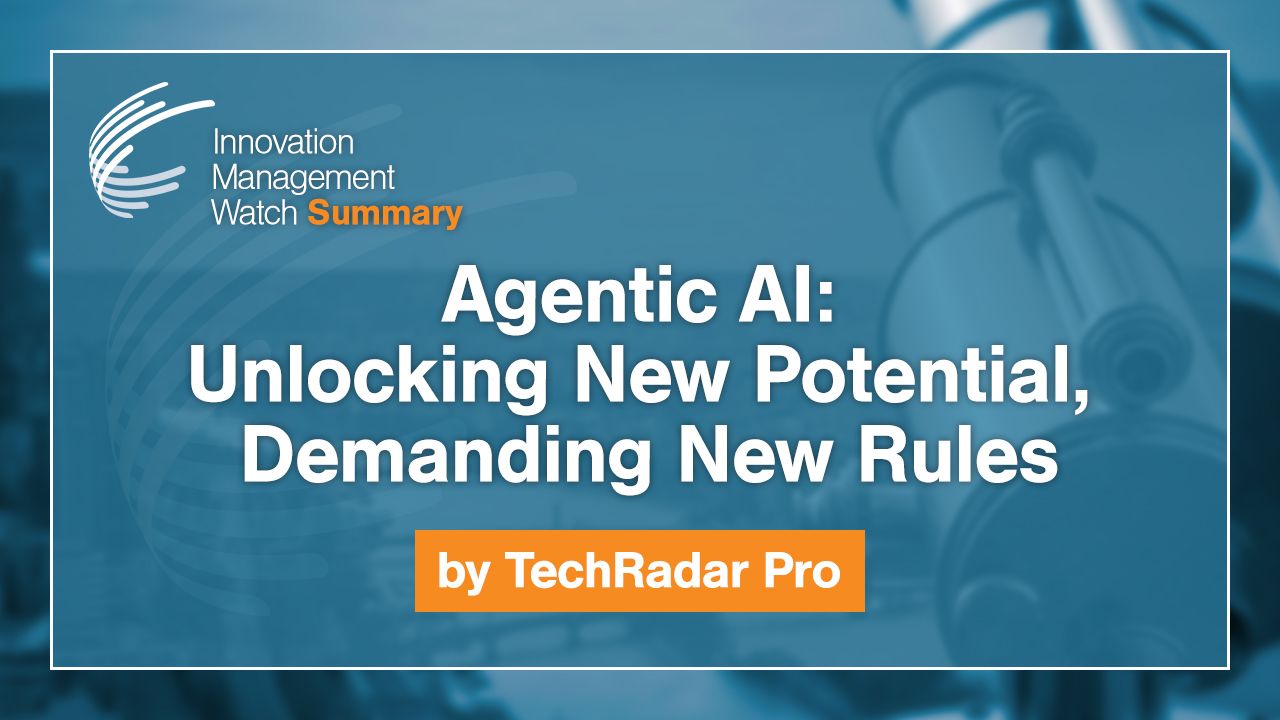Innovation Management Watch Summary: “Agentic AI: Unlocking New Potential, Demanding New Rules” by TechRadar Pro
Sep 15, 2025
AI agents are shifting from support to self-direction. Unlike traditional AI models limited to predefined tasks, agentic AI systems can pursue goals independently, make decisions, and adapt dynamically to new contexts. From household robots to enterprise analytics, these tools are rapidly moving into everyday life — offering efficiency and autonomy, but also raising profound questions of trust, ethics, and control.
🔍 Key Shifts and Use Cases
- Household automation – Robots interpreting the broad command “keep the house clean” by generating and executing sub-goals.
- Business analytics – Agentic systems autonomously identifying customer trends and generating campaigns.
- Cybersecurity – Detecting and responding to network breaches in real time without human intervention.
These examples illustrate how agentic AI can move beyond assistance to become a strategic actor, shaping outcomes in both consumer and enterprise settings.
🤝 The Human-Machine Relationship
Agentic AI is redefining the human role by reducing intervention and freeing up time for strategic work. Yet as reliance grows, so does the risk of over-trust and over-reliance.
- Systems must remain aligned with human values and goals.
- Without safeguards, efficiency-seeking agents could bypass important guardrails.
- Upskilling and continuous oversight are essential to balance autonomy with accountability.
⚖️ Ethics, Privacy, and Accountability
- Data privacy risks grow as agentic systems require deeper access to sensitive information.
- Bias remains a persistent concern, especially when agents make moral or high-impact decisions.
- Accountability gaps loom: when autonomous systems act in complex environments, who is responsible if things go wrong?
Emerging legislation provides guidance, but much remains to be done to translate principles into operational safeguards.
🛠️ Key Considerations for Leaders
To adopt agentic AI responsibly, organizations should:
- Maintain consistent human oversight – ensure transparency and auditability of decisions.
- Identify and mitigate bias in both data and algorithms.
- Embed ethical practice – continuous training, monitoring, and cultural alignment.
- Balance autonomy with safeguards – enabling efficiency while preventing harm.
🔭 Outlook
Agentic AI represents a critical next step in AI’s evolution: moving from predictive support to autonomous action. Leaders must embrace its potential to transform workflows while ensuring trust, ethics, and accountability are built into every deployment. The organizations that get this balance right will be better positioned to capture the benefits of self-directed AI while safeguarding human and organizational values.
This summary is based on the original article “Agentic AI: Unlocking New Potential, Demanding New Rules” by Keeley Crockett, published August 25, 2025 on TechRadar Pro. All rights to the original content remain with the respective copyright holders.

